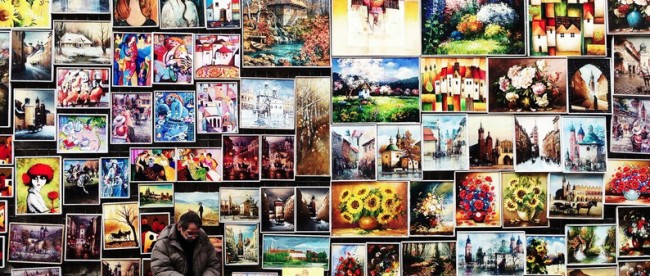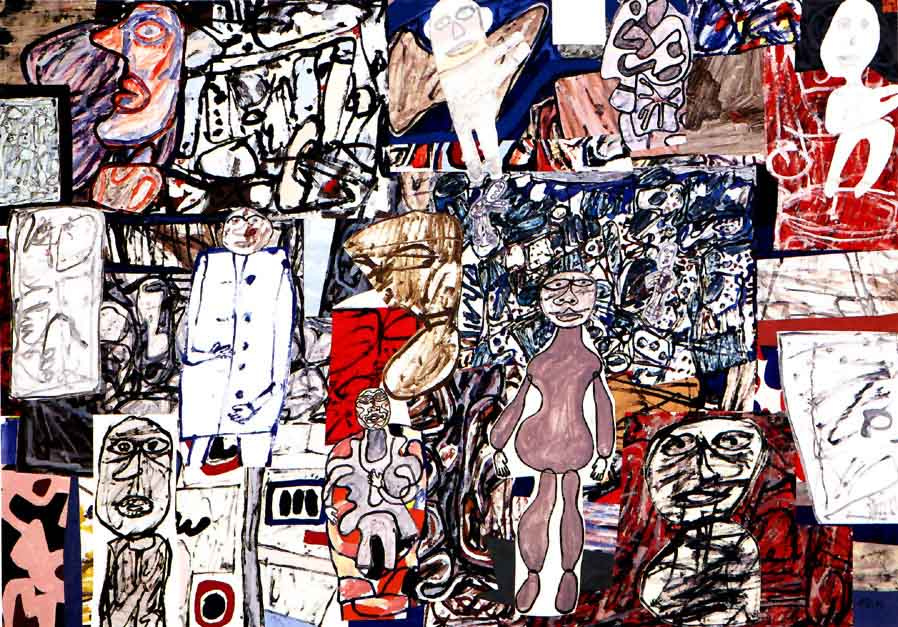An Exploration of the Creative’s Dilemma
“Every human being has a creative impulse, and we all have the right to exercise this creative impulse.” – Patti Smith
One of the greatest dilemmas that we face as creative people is the age-old question: create for yourself or for others?
As a developing writer, I fumble with the right balance between the ideal – unbridled eloquence and inventiveness of expression, and the realistic – simple writing accessible to all readers. Should my writing serve a functional purpose or something more grandiose; an art form of its own?
Similarly artists, designers, musicians, dancers, and other creators across the board, struggle with the fact that in order to appease the public, we must sacrifice the sanctity of our creations.
Why does creativity fall under the black and white functions – of art and practicality?
The timelessness and ethereal beauty of creative expression, spurred by serendipitous inspiration – codified to such simple and polar constructs; it’s almost a mockery, a spit in the face, and oppression of our visions.
But it’s not beyond reason: when unbridled creations swing beyond general taste, they veer toward exclusivism. Heavy writing is discouraging to readers who are not from language-rich environments. Abstract music is bewildering to ears accustomed to common chord progressions. Raw and haunting art is confrontational and overwhelming for the average viewer. Multi-sensory cooking is unappetizing to people unaccustomed to new culinary frontiers.
When something is too complex and foreign, it disengages and alienates the audience.
Furthermore, there are established structures, rules, and guidelines for each creative discipline that are historically proven successful. We learned to color within the lines, to form grammatically correct sentences, to draw in grids, to follow the rule of thirds in photography – building a framework in which we operate, because that is comprehensible to the general audience.
Some of the rules of writing include never writing long sentences and avoiding big words, adjectives, and adverbs. When I adhere to these rules I can compose concise, lucid, and accessible writing. It gets the message across to any reader.
But damn, it is unimaginative and prosaic as hell.
The structured result does not capture who I am as a writer. I like fluff, I like abstract descriptions.
I like colorful words painting an electrifying visage where my imagination can run wild.
So when can we dare to tip the balance between (rules + order + public gratification) and (deviance + liberty + public dissatisfaction)?
As Robert Schumann once said:
To send light into the darkness of men’s hearts – such is the duty of the artist.
So then, it is our duty as artists (creatives) to imbibe the unprocessed elements of the world and offer libation, illumination, and curate an all-embracing experience for the unsighted. This is the exception for which we tip the balance toward unrestricted creative expression.
We can be the Howard Roarks of our generation.
We can embody the modern Randian hero disrupting the inviolability of preexisting structures and conventions – to rupture the skin of our subjective worlds and force open new dimensions of thought, of feeling, of living.
As Leo Tolstoy said:
Art is not handicraft, it is the transmission of feeling the artist has experienced.
We create, to capture and release, the beauty of a moment, a scene, a feeling; our creative expressions are our catharsis and a public service. Whatever form they take, our unbridled creations provide an enduring experience for the viewer. To sacrifice any of that would diminish the completeness of the experience and they would serve neither ourselves nor others.
So fight on, you Promethean hero, you. And always remember what Patti Smith told the creatives across the world:
It’s brave to believe that you deserve to do what you do. We all doubt our place in the world, fearing others would deem us arrogant should we exude even a whiff of confidence in our work and our right to do it. While doubt cannot – and should not – be totally divorced from our consciousness, there’s bravery in tempering that inevitable lack of conviction with a belief that yes, I belong here.


